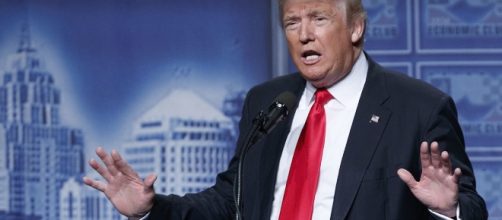trump announced tax cuts this past Wednesday that his economic team called, 'historic,' though some might ask, historic for whom? According to the Plan, those who will benefit include individuals whose investment earnings fall over the $250,000 line by eliminating a tax used to fund Obamacare, and those whose combined family income exceeds $470,000. The elimination of the Estate Tax, also known as the 'Death Tax' would help anyone who is bequeathing an estate worth more than $5.49 million.
Repealing the alternative minimum tax
The Alternative Minimum Tax, known as A.M.T.
is to be repealed under the proposal; a tax that is honed toward the very rich, making tax evasion techniques difficult, and which in 2005, cost Trump himself an additional $31,000,000. Lastly, the corporate tax rate is to be lowered from 35% to 15%, a reduction that is said to greatly reduce taxes for small businesses and is in line with most other industrialized nations. However, most small businesses are not taxed at 35%, while much of Trump's business empire is. According to NPR, the fact of the matter is, "Trump Stands to Gain Tens of Millions" from his own tax plan.
Not all provisions though were seen as aggressively for Trump. The tax plan stands to almost double the standard deduction that would ensure, according to National Economic Director Gary Cohn, "a married couple will not have to pay taxes on the first $24,000 it earns." For the middle class American though, this might be the only benefit Trump's plan has to offer.
In concern for other individuals, mainly single parents with children, Trump's plan looks to get rid of the Head of Household filing status, and, according to Forbes, the plan would "eliminate personal and dependent exemptions, raising taxable income for all single parents who do not itemize." As family size increases, taxable income increases by a few thousand dollars for any additional children.
Single parents may be the one's who suffer the most from Trump's plan.
'I love debt'
During the debates, Trump continuously criticized President Obama for doubling the National Debt, though according to economist Alan Cole, Trump's plan would, "cost the Treasury $4 trillion to $6 trillion over 10 years" and many analysts are skeptical that Trump's plan will pay for itself, stating that the economy would have to grow 5% to recoup its losses.
"I love debt" said Trump to CNN correspondent Wolf Blitzer, "I'm the King of Debt." This line, said almost a year ago to date, seems to be Trump's self-fulfilling prophecy. However, in lieu of the Federal Reserve's recent interest rate increases and more increases expected in the near future, how does Trump expect to pay off all this debt, especially debt taken on that is out of his control? In his words, according to one CNN article, "If interest rates go up one percent, that's devastating...What happens if that interest rate goes up 2, 3, 4 points? We don't have a country."
The smoke and mirrors effect of cutting taxes may end up turning into an eventual, yet very hush hush, plea to the Federal Reserve to bail America out by printing more money. The impact of this will not trouble the wealthiest of the nation, but spread out along the backbone of every American.

